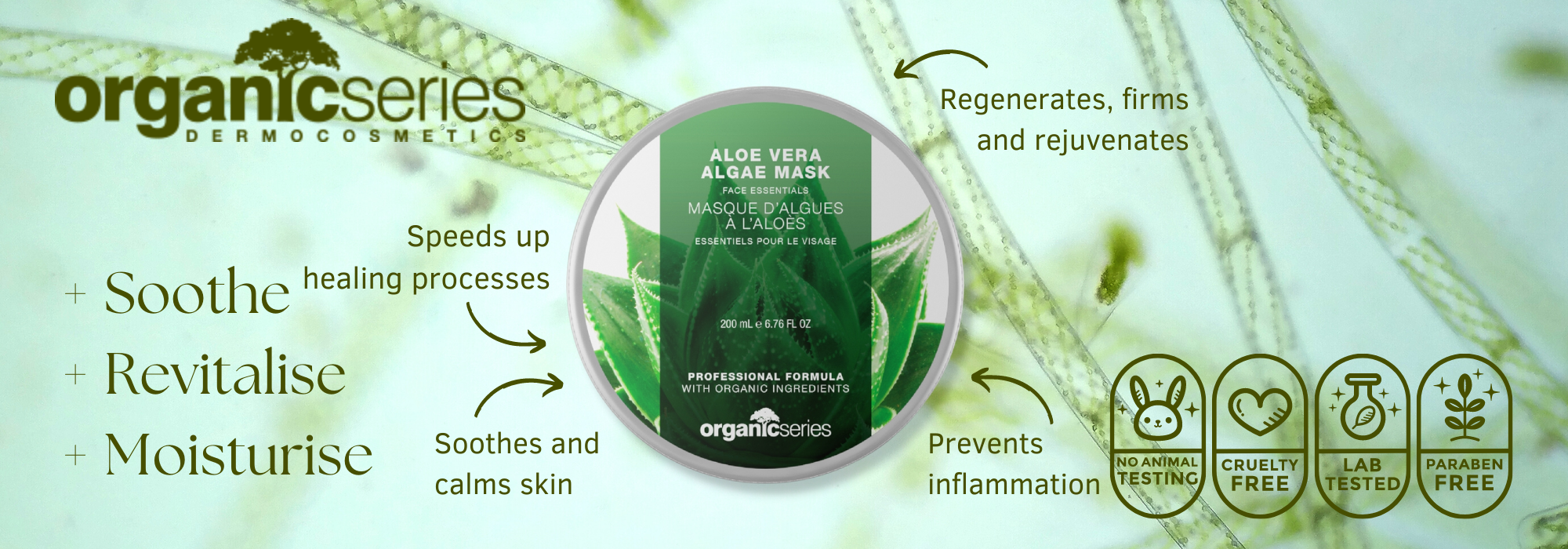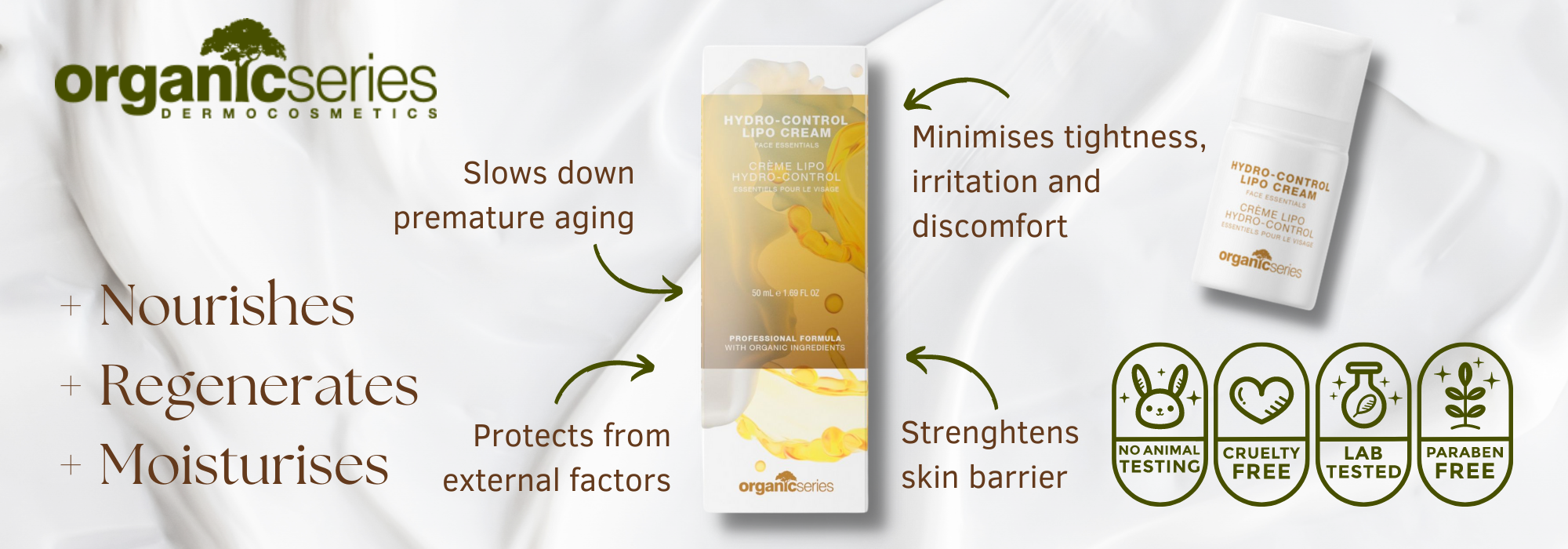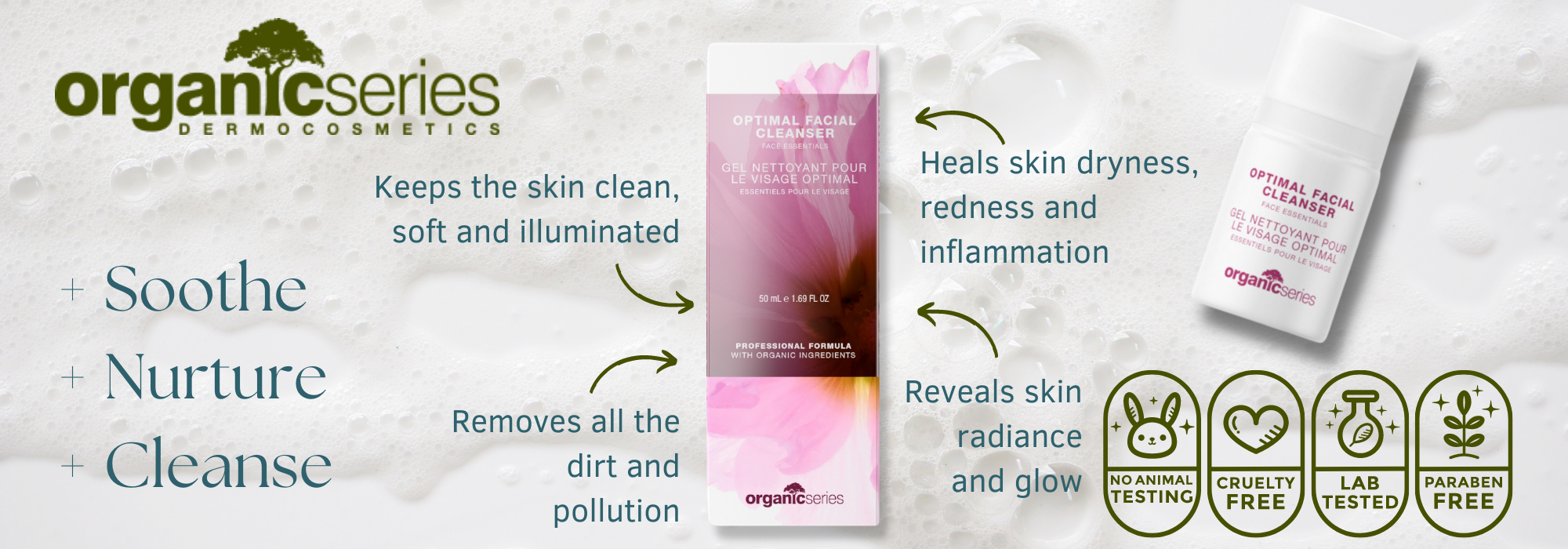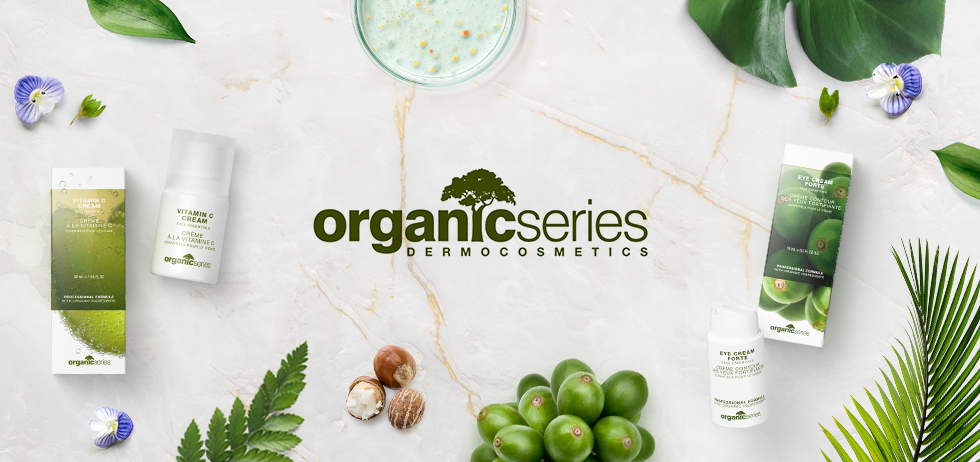Organic skincare for sensitive skin
Finding the best organic skincare for sensitive skin can feel like navigating a complex maze. With sensitive skin, even the smallest irritant can cause redness, dryness, or discomfort. Organic skincare, with its focus on naturally derived ingredients and the absence of harsh chemicals, offers a promising solution for sensitive skin.
However, the world of organic products is vast, and not every “organic” label guarantees a suitable match for sensitive skin types. This guide will walk you through 11 carefully crafted steps to help you discover the perfect organic skincare for sensitive skin that caters to your specific needs, ensuring healthier, radiant, and resilient skin.
Step 1: Understand Your Unique Skin Sensitivities
Before you choose any organic skincare for sensitive skin, it’s crucial to have a clear understanding of what triggers reactions for your skin type. Take note of any past irritations or common allergens, and observe your skin’s response to environmental changes like temperature fluctuations or humidity. This knowledge will guide you in choosing ingredients that calm and protect your skin.
Sensitive skin is often prone to inflammation, itchiness, or redness, so look for organic skincare for sensitive skin that prioritizes gentle, hypoallergenic ingredients. Common allergens to watch for include artificial fragrances, dyes, and even some natural essential oils. Knowing what to avoid will narrow your choices and make it easier to find products that suit you.
You can also consider consulting with a dermatologist. They can help identify your skin’s sensitivities through patch tests and recommend organic skincare for sensitive skin products that will address your unique concerns without triggering reactions.
Step 2: Prioritize Organic Certification Labels
When shopping for organic skincare for sensitive skin, pay attention to certification labels like USDA Organic, Ecocert, or COSMOS-standard. Certified organic products adhere to strict guidelines, ensuring the ingredients are natural and free from harmful chemicals and pesticides. This provides an added layer of safety and quality assurance for sensitive skin.
Skincare products that carry these certifications are typically free of harsh synthetics, which can often exacerbate skin sensitivity. The assurance of organic certification means the products contain pure, natural botanicals and fewer artificial ingredients, reducing the risk of unwanted skin reactions.
Additionally, choosing certified organic skincare for sensitive skin helps support environmentally conscious and sustainable practices. By investing in these products, you’re also contributing to healthier agricultural methods and reducing the impact of toxins on the environment.
Step 3: Opt for Fragrance-Free Formulas
Fragrance is one of the most common irritants for sensitive skin. When selecting organic skincare for sensitive skin, it’s essential to choose fragrance-free or minimally scented products. Natural fragrances from essential oils can still cause irritation, so be cautious even with those labeled as organic or “natural.”
Some organic skincare for sensitive skin brands specifically formulate their products without added fragrances or with hypoallergenic options. If you prefer a product with a light scent, look for one with soothing essential oils like chamomile or lavender, but always do a patch test first.
Remember, fragrance-free does not always mean unscented. Even naturally derived compounds in organic products can have a subtle aroma. Carefully read labels and choose options designed with sensitive skin in mind to avoid unwanted flare-ups.
Step 4: Focus on Calming Ingredients
To soothe and protect your skin, opt for organic skincare for sensitive skin with calming and anti-inflammatory ingredients. Look for options containing aloe vera, calendula, chamomile, oat extract, or rosehip oil. These ingredients are renowned for their ability to reduce redness, hydrate deeply, and calm irritation.
The anti-inflammatory properties of these botanicals can help reduce redness and strengthen the skin barrier, making it more resilient to external stressors. Regular use of calming products can improve your skin’s ability to handle environmental triggers and reduce flare-ups over time.
Make sure to patch-test any new product with calming ingredients before use. Even the gentlest of substances can occasionally lead to reactions, so it’s best to proceed with caution.
Step 5: Choose Products with Moisture-Locking Ingredients
Sensitive skin often struggles with maintaining a healthy moisture barrier, which can lead to dryness and vulnerability to irritants. The best organic skincare for sensitive skin products contain humectants, emollients, and occlusives that help retain moisture without clogging pores.
Look for ingredients like hyaluronic acid, squalane, shea butter, or natural oils such as jojoba or sweet almond oil. These ingredients lock in moisture, keep the skin hydrated, and fortify its natural barrier against external aggressors.
Hydrated skin is less likely to react to triggers, making the right moisturizers a vital part of any organic skincare for sensitive skin routine. Layering your products, such as using a lightweight serum followed by a rich moisturizer, can maximize moisture retention and create a protective barrier on your skin.
Step 6: Avoid Alcohol-Based Products
Alcohol can be harsh on sensitive skin, often leading to dryness, irritation, and even inflammation. Many conventional toners, cleansers, and even creams contain drying alcohols. To ensure your organic skincare for sensitive skin routine is effective, avoid products containing alcohol or other drying agents.
Instead, look for toners and cleansers formulated with hydrating agents, botanical extracts, and hydrosols. These alternatives help balance and cleanse without stripping away essential moisture, maintaining a calm and soothed complexion.
Even if alcohol is listed toward the end of an ingredient list, it may still have a drying effect on sensitive skin over time. Reading labels carefully and choosing alcohol-free formulas can make a significant difference in managing sensitivity.
Step 7: Seek Out Antioxidant-Rich Formulas
Antioxidants protect sensitive skin from environmental damage, pollution, and oxidative stress. Choose organic skincare for sensitive skin products with antioxidants like vitamin C, green tea extract, or vitamin E. These ingredients protect and nourish your skin, giving it the strength to better withstand external triggers.
Products rich in antioxidants help reduce redness and irritation by countering inflammation and promoting skin repair. This makes them excellent additions to your daily routine to keep sensitive skin healthy and resilient throughout the day.
When using antioxidant-rich products, combine them with a good sun protection routine to maximize their benefits. Antioxidants can enhance the skin’s defense but work best when partnered with sunscreen.
Step 8: Patch-Test Every New Product
Sensitive skin can be unpredictable, so it’s essential to patch-test any new product, even if it’s marketed as organic skincare for sensitive skin. Apply a small amount of the product on your forearm or behind your ear and wait 24 to 48 hours to observe any reaction.
Patch-testing allows you to identify potential irritants before applying a new product to your entire face. This precaution can prevent unnecessary breakouts, rashes, or discomfort from a reaction you weren’t expecting.
Consistently patch-testing new additions to your routine can be time-consuming but is crucial for maintaining healthy and happy skin. Take your time and gradually introduce new organic skincare for sensitive skin products for the best results.
Step 9: Be Mindful of Exfoliation
Exfoliation can be beneficial for removing dead skin cells, but for sensitive skin, over-exfoliation can lead to irritation, dryness, and discomfort. The best organic skincare for sensitive skin should include gentle exfoliation, such as products with mild fruit acids or enzymatic exfoliants that are less abrasive.
Avoid harsh physical scrubs with large particles that may damage your skin’s protective barrier. Instead, choose exfoliating masks or cleansers formulated for sensitive skin that will remove impurities gently.
Limit exfoliation to once or twice a week and pay close attention to how your skin responds. Gentle exfoliation will keep your complexion glowing without compromising your skin’s natural balance.
Step 10: Stick with a Minimal Routine
When caring for sensitive skin, less is often more. The best organic skincare for sensitive skin focuses on a minimalistic yet effective routine. Start with a gentle cleanser, soothing toner, hydrating serum, and a nourishing moisturizer. Avoid overloading your skin with too many products, as this increases the risk of irritation.
Streamlining your routine reduces your exposure to potential irritants and makes it easier to identify what works best for you. Quality over quantity is key, so focus on products with simple, soothing, and nourishing ingredients designed for sensitive skin.
Monitor your skin’s response and be prepared to adjust your routine as needed. Seasonal changes, stress, and diet can all influence how your skin behaves, so staying in tune with your skin’s needs will help maintain optimal results.
Step 11: Sun Protection Is a Must
Sensitive skin is particularly susceptible to UV damage, so a broad-spectrum sunscreen is an essential part of any organic skincare for sensitive skin routine. Look for mineral-based sunscreens with zinc oxide or titanium dioxide, which are less likely to cause irritation than chemical sunscreens.
Choose sunscreens with added calming ingredients like aloe vera or chamomile to further soothe and protect. Sun exposure can exacerbate redness, inflammation, and irritation, so consistent sunscreen use is non-negotiable for sensitive skin types.
Applying sunscreen every morning and reapplying throughout the day when exposed to direct sunlight will help keep your sensitive skin protected. This final step locks in the benefits of your organic skincare routine and ensures your skin remains healthy and radiant year-round.
Conclusion
Finding the best organic skincare for sensitive skin requires patience, research, and careful consideration of ingredients. By following these 11 steps, you can create a skincare routine that soothes, nourishes, and protects without causing irritation. Organic products can provide powerful results without the use of harsh chemicals, making them an ideal choice for sensitive skin. With the right approach and commitment, you can achieve healthier, happier, and beautifully radiant skin that feels as good as it looks.
Sensitive skin – 7 reasons why you should use organic products?

If you have sensitive skin, nature can be your best friend. Natural products are often hypoallergenic, meaning they’re less likely to trigger a reaction on delicate skin. Plus, nature-based ingredients are gentle and clean, which helps keep your skin nourished without the risk of irritation.
Organic skin care products contain nature-derived ingredients that work in harmony with the cells of your skin. Not only do they provide clean, pure nutrition, but they also help to protect your delicate dermis from environmental pollutants and free radicals. In addition, organic skin care products are often made without harsh chemicals or synthetic fragrances, which can further irritate sensitive skin.
Finally, many organic skin care products are free of parabens and other harsh preservatives, leaving behind gentle ingredients that won’t damage your skin. Caring for sensitive skin can be a challenge, but if you choose organic products you can ensure gentle care and effective results.
The 7 Reasons Why You Should Use Organic Skincare for Your Sensitive Skin:
- Natural ingredients are hypoallergenic and gentle on delicate skin
- Organic products provide clean nutrition to nourish your cells
- Nature-based ingredients protect skin from environmental pollutants and free radicals
- No harsh chemicals or synthetic fragrances which can irritate sensitive skin
- Free of parabens and other harsh preservatives
- Formulated with gentle, nourishing ingredients
- Effective results without damaging your skin.
By using organic skincare, you can ensure that the products you use are not just effective but also kind to sensitive skin. With the right knowledge and products, it is possible to keep your skin healthy and looking its best.
What you should avoid when your skin is sensitive?
When it comes to sensitive skin, synthetic ingredients should be avoided as much as possible. Artificial fragrances, preservatives and other toxic chemicals can be harsh and dry on delicate skin. They may also contain potential carcinogens or irritants that can cause further irritation or potential harm.
Natural ingredients are always a better choice for sensitive skin, as they are gentler. Additionally, harsh exfoliants or acne treatments can be too abrasive for sensitive complexions. If you have sensitive skin, it’s important to choose products specifically designed to care for your delicate dermis.
When choosing organic skin care products, make sure to read the labels carefully. With a careful selection of organic products, you can ensure that your skin and body is safe. Caring for sensitive skin can be a challenge but with nature on your side, it can be done with ease.
How to cleanse sensitive skin?

The best way to cleanse sensitive skin is with gentle, non-abrasive products that are mild and free of artificial fragrances and harsh chemicals. A gentle gel cleanser or oil cleanser can be ideal for removing impurities without stripping your skin’s natural oils. Cleansing creams also provide gentle cleansing and gentle hydration, making them a great choice for sensitive skin.
When it comes to gentle cleansing, organic products are usually your best bet as they contain natural ingredients that are kinder to the skin. Remember that when it comes to sensitive skin, less is more. Over-washing can strip away natural oils and moisture, leaving you with an unbalanced complexion. Therefore, gentle yet effective cleansers should be used and cleansing should be kept to a minimum.
Should you exfoliate sensitive skin?

Exfoliation is an important skincare step but it may not be suitable for all skin types, especially sensitive skin. If you have sensitive skin and are considering exfoliating, mild peels or mild exfoliants such as a gentle cream exfoliant or gentle bamboo peeling should be used. Avoid abrasive scrubs and strong chemical peels. Always perform a patch test on your skin to check for any reaction before embarking on full-face exfoliation. If you don’t feel comfortable with using an exfoliant, mild cleansing can be sufficient for removing impurities from the skin.
ALOE VERA BASED PRODUCTS – GREAT Organic Skincare FOR SENSITIVE SKIN
Few facts about aloe vera:
Aloe vera is a succulent plant that has long been used for its anti-inflammatory, healing and antioxidant properties. It contains antioxidants such as vitamin A, C and E, amino acids, fatty acids, enzymes, and minerals which help to protect the skin from environmental pollutants while soothing inflammation. Aloe vera can be found in many organic skincare products due to its calming and hydrating effects on the skin.
Aloe vera has many beneficial properties for sensitive skin, such as aiding in healing psoriasis lesions and calming irritated skin or even sunburns. It can also be used to reduce redness and puffiness while providing deep hydration.
Organic aloe vera-based skin care products are ideal for those with sensitive complexions. These products are usually free of harsh chemicals and artificial fragrances, and they are often hypoallergenic too. Not only do they nourish the skin but they also help to lock in moisture while repairing any damage caused by environmental factors.
How to add aloe vera to your daily skin regime?

Start by adding soothing aloe vera based face masks to your weekly skin regime. A soothing face mask not only helps to soothe and repair sensitive skin but it can also help to reduce inflammation and redness too. Aloe vera is also a great choice for moisturizers as its hydrating properties make it ideal for rehydrating dry, dehydrated skin.
Moisturizers with aloe vera will help to reduce redness and irritation while providing anti-inflammatory benefits.
In the end, aloe vera is an ideal choice for those with sensitive skin. Not only does it help to soothe and calm irritation but it also helps to repair any damage caused by environmental pollutants too. Adding organic aloe vera-based products to your daily skin regime will help you achieve a healthy complexion.
With organic aloe vera-based products, you can easily restore balance to sensitive skin and help keep it healthy and looking great.
At Organic Series, you can find aloe vera-based products as well as other great products for sensitive skin, from cleansers to masks and exfoliators to moisturisers.
Professional product recommendation – organic skincare for sensitive skin

Soothing and Hydrating Cream-Gel Mask
Soothing Cream Mask | Soothing Mask By Organic Series | 50ml, 200ml
Aloe Vera Algae Setting Mask

Aloe Vera Algae Face Mask | By Organic Series | 200ml, 500ml, 1l
Anti-Redness Moisturiser for Sensitive Skin
Hydrolipid Cream – deep hydration face cream

Organic Cold Cream | Hydro Lipid Control Cream By Organic Series | 50ml
Gentle Face Moisturiser
Organic Face Moisturiser | Moisturising Cream Forte By Organic Series | 15ml, 50ml, 200ml
Best Cleanser for Sensitive Skin

Organic Facial Cleanser | Optimal Facial Cleanser By Organic Series | 50ml, 200ml
More inspiration
Follow Organic Series UK on instagram and facebook for more inspiration, expert tips and special discount codes!



